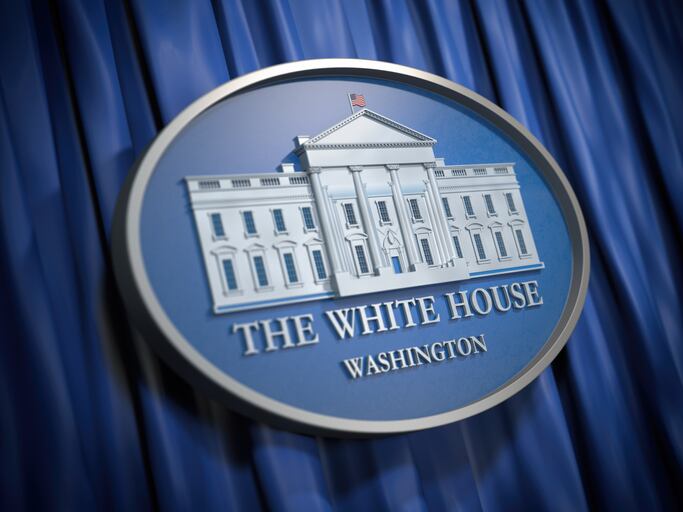At the G-20 summit in Buenos Aires on Friday, US President Donald Trump, Canadian Prime Minister Justin Trudeau and Mexican President Enrique Peña Nieto collectively signed the USMCA deal. It’s an arrangement that has been closely followed and critiqued in the participating countries for its free trade successes and shortcomings.
“This new agreement will ensure a future of prosperity and innovation for Mexico, Canada, and the United States,” Trump said before signing the USMCA on Friday.
However, not everyone shared the optimism. Pierre Lampron, president of Dairy Farmers of Canada (DFC), pulled no punches when he said of the signing, "This is truly a dark day in the history of dairy farming in Canada."
Canadians feel betrayed by Trudeau
In the last six months, Trump has engaged in several trade disputes with some of the US’ closest allies. A volatile disagreement with China has cost both nations billions of dollars in retaliatory tariffs on food and automotive products.
Trump’s trouble with Canada and Mexico has mostly stemmed from his displeasure with NAFTA, a deal he found restrictive on several trade commodities - dairy in particular. In order to protect the livelihood of its own farmers, Canada has traditionally imposed high tariffs on dairy imports. This prevents the US from flooding the Canadian market with low-priced dairy surplus and pricing Canadian family farms out of its own industry.
Throughout the process of settling this new trade agreement, Trudeau maintained he would only make a deal with Trump if it benefited Canadian farmers and workers. But after the US said it compromised with Mexico in August and then the initial USMCA news was announced at the end of September, Canadians were mostly disappointed and believed Trudeau had caved to what they see as an unfair deal.
Lampron said in the space of a few weeks, Canada's federal government has gone beyond the original concessions made when the USMCA was announced, and signed the deal, which grants the US oversight in the administration of Canada's dairy system.
Despite commitments from the Canadian government that these oversight measures would not be in the agreement, the signed trade deal includes such provisions, Lampron said.
"The oversight clause undermines Canadian sovereignty and its ability to develop and manage Canadian policies without US intervention. This should not be understated, and will have a lasting effect on our domestic dairy sector."
The Dairy Processors Association of Canada (DPAC) estimated that the agreement will result in more than $2bn losses from market access and implementation.
Mathieu Frigon, president and CEO of DPAC, said "Over the past year and a half, we have repeatedly heard our government state that it would stand up for the Canadian dairy sector. However, what was agreed to [in the USMCA] demonstrates very little support for our interests."
Americans still feel the tariff pain
US farmers have generally felt more favorable to the new deal thanks to the increased access to Canada’s market and move to settle tensions between the three countries. But financial effects have still been felt in US agriculture thanks to lingering tariffs from Trump’s frequent trade wars.
The deal will also not take immediate effect, as each country must ratify it through their own governments. Trump will have a tough time getting the USMCA through Congress in 2019 with the House of Representatives having recently flipped to Democrat control following the November midterm elections.
Laurie Fischer, CEO of the American Dairy Coalition, asked the president and legislators in a statement how long they will allow this confusion to continue before they address the hurt that’s been felt on dairy farms.
“Dairy farms from coast to coast face financial collapse with prices at current levels: Without an equitable resolution to the trade wars, Texas A&M AgriLife Extension Service projects US dairy producers will lose $3.4bn annually and nearly 16,000 jobs over the next five years,” Fischer said.
“The president’s government subsidy program has proven ineffective, incapable of keeping pace with the devastating impacts of what has been, essentially, a trade war on multiple fronts.”
“The American Dairy Coalition, which represents dairy producers throughout the United States, calls on President Trump to take action immediately by removing the steel and aluminum tariffs from Mexico in exchange for lifting tariffs on our dairy products. Furthermore, urgency is required to immediately come to an agreement with China that will remove tariffs against the US dairy products.”
A critical step forward?
The Edge Dairy Farmer Cooperative, which represents Midwest milk producers, applauded the deal and called its signing a ‘critical step forward’ in the separation of ‘damaging tariffs.’
However, it also said it “stressed the importance of clearing up remaining uncertainties in the deal and resolving the tariff issue that continues to hurt farmers.”
“The deal includes important provisions for dairy, including retaining market certainty with Mexico, protecting common cheese names in the Mexican market, adding transparency provisions for oversight of Canada’s internal pricing structure, and placing limits on certain Canadian exports. “
Brody Stapel, president of Edge, said “Given the importance of keeping a NAFTA-style agreement, we are thankful for the hard-fought progress the three countries have made. Mexico is the most important trading partner for our dairy community, and changes in the deal with Canada should provide benefits there also.”
“The agreement’s elimination of classes 6 and 7 pricing in Canada is welcome news. The pricing has shut exporters out of the Canadian market for ultra-filtered milk used in making cheese. And it has allowed Canada to under-sell U.S. processors in overseas sales of surplus skim milk.”
“Overlaying all of this is the ongoing tariff retaliation against our dairy products shipped into Mexico that are a result of the US’ separate tariffs against steel and aluminum imports. We can’t stress enough to the administration that the dairy community is suffering because of this situation. Without an end to the tariffs, the new agreement will be less than a complete win for us."

